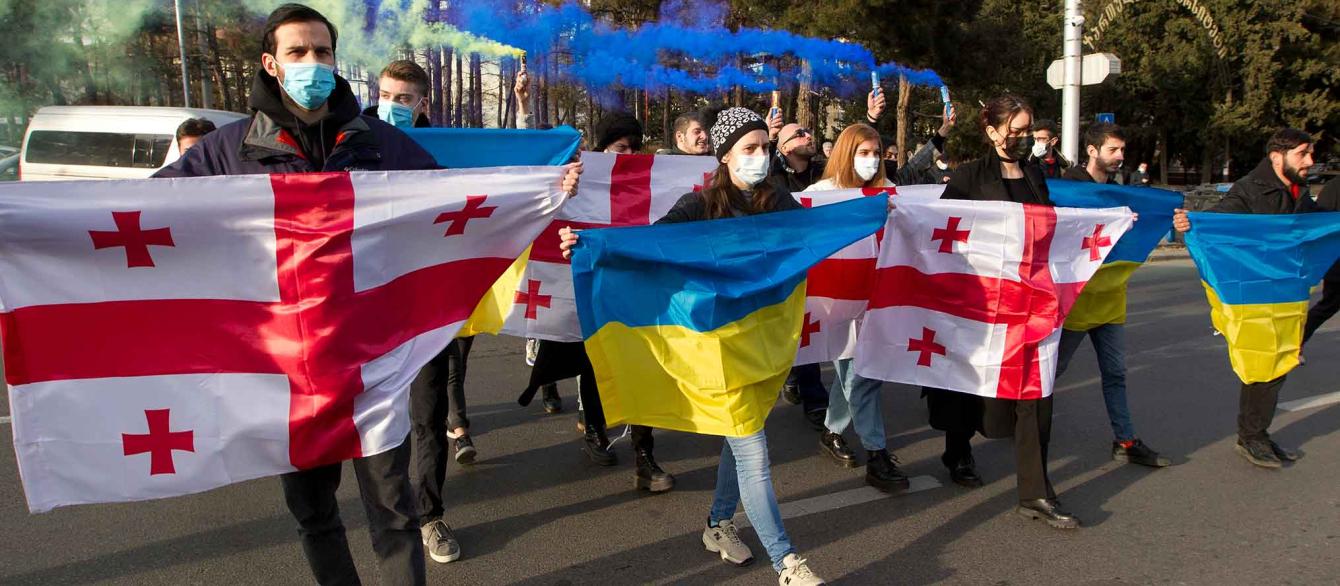There is no question that watching Ukraine under Russian attack is deeply personal for us Georgians. But it is important to consider the differences between Georgia in 2008 and Ukraine today. Some headlines have focused on establishing parallels between the two, which suggests that Vladimir Putin is re-enacting his “Georgia playbook” in Ukraine. While there are similarities, we argue that overstating them leads to a deeper misunderstanding of both conflicts and leaves out significant differences that need to be addressed.
Before we turn to the differences, it is worth noting the similarities between the two conflicts. To begin with, in both cases the Kremlin’s decision to invade was driven by political objectives rather than material security. Since his speech at the 2007 Munich Security Conference, Putin has continuously insisted on the urgent need to counter NATO’s further eastward expansion as a national security imperative. International relations realists share this argument and assume that the U.S. foreign policy establishment lacks “cognitive empathy” and fails to account for rational Russian strategic anxieties. They also claim this is why negotiations have failed. However, the link between Putin’s wars against Georgia and Ukraine and Russia’s national security are tenuous.
Read More
The full text of this article is available via the Middle East Institute.






